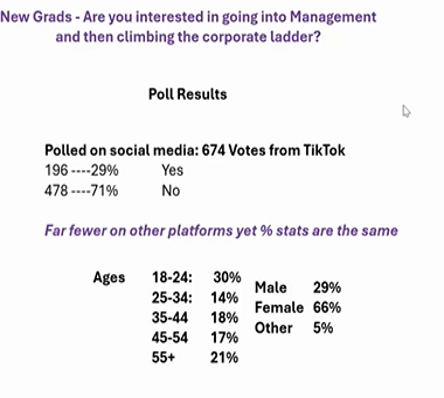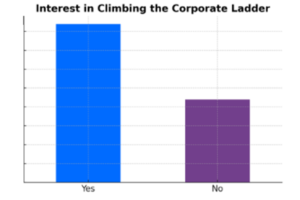A new network of modern career pathways is taking shape, and talent leaders need to adapt fast.
Back in the day, career growth was measured in rungs. You climbed the corporate ladder — starting in the mailroom, working your way into management, maybe even sitting in the CEO’s chair. The formula was clear: get degrees, keep your head down, work hard, and eventually you’d rise.
For late Gen X, Xennials, and Millennials, that was embedded in our DNA: Success meant moving up.
But that is not Gen Z.
Today’s youngest professionals don’t see the corporate ladder as the only path forward. It’s not a lack of motivation — it’s a recalibration. They’ve watched the burnout, the forced boxes, the quiet resignations. They grew up in crisis after crisis, against a backdrop of constant tech innovation and cultural reflection. Their conclusion: work should look different.
New research and pulse surveys show that younger workers want purpose-driven work and flexible career paths over titles, hierarchy, and politics.
As an RPO and strategic talent acquisition partner, we recognized these shifts and conducted our own research to verify what we were seeing.
The Poll Results: What Workers Want from Modern Career Pathways
To see if the headlines matched reality, we ran two polls — one external, one internal.
Poll 1: TikTok (674 respondents).
We asked new grads: “Are you interested in going into management and climbing the corporate ladder?”
The overwhelming answer: No.
Most of the “Yes” responses came from Millennials, not Gen Z.

Poll 2: Internal Staff Pulse
When we asked our employees about their career ambitions:

- 66% expressed interest in climbing the corporate ladder.
- 34% said they had no interest in pursuing leadership roles at all.
Even among those who did want leadership, aspirations varied widely — from frontline supervisors to senior executives. The majority of the “yes” responses came from Millennials, reinforcing that Gen Z is far less motivated by the traditional climb.
Translation: Leadership is not a one-size-fits-all ambition.
The Takeaway for Leaders: Building Modern Career Pathways
The results align with national statistics: Gen Z is ambitious, but on their own terms. They’re not rejecting growth; they’re rejecting a single definition of it.
For leaders, that means rethinking development strategies:
- Create multiple pathways. Traditional leadership progression still matters, but so do lateral moves and skill-based roles.
- Invest early. First-line managers need training and confidence-building to stay in the pipeline.
- Redefine leadership. Not everyone wants to manage people, but anyone can lead through expertise, influence, and innovation.
Bottom line: Gen Z doesn’t want to be faceless cogs and rejects business as usual.
And while the traditional corporate ladder may be collapsing, what replaces it could be stronger: a network of career paths where ambition takes many forms.
